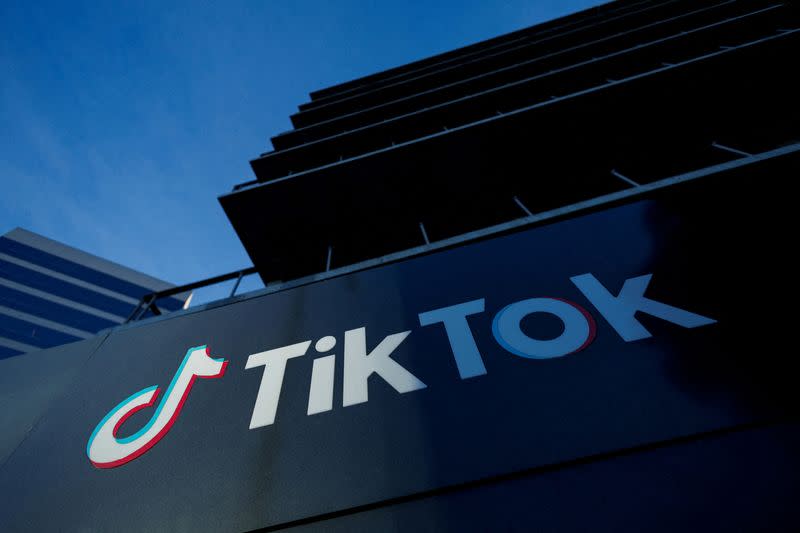In its opening brief against a US divest-or-ban bill, short video app TikTok and its Chinese parent ByteDance argued that the law is unconstitutional because it is discriminatory and violates First Amendment rights of the companies and their users.
TikTok argued that the US Congress “expressly singled out” the app without providing a firm basis for its actions, resulting in a law that effectively bans the app.
TikTok also reiterated that a divestiture was not feasible in technological, operational, commercial and legal terms, as it would require an expensive and long process of splitting a huge volume of code. It went on to argue that even if that were possible, the Chinese government would not allow it.
Also on AF: Google, OpenAI Scrutinise Staff Amid Fear of China Spying – FT
“Just as the United States restricts the export of US-origin technologies (eg, certain computer chips), the Chinese government regulates the transfer of technologies developed in China,” TikTok argued in the brief.
“The Chinese government has made clear in public statements that it would not permit a forced divestment of the recommendation engine.”
TikTok also challenged the US government’s argument that the bill was not a de-facto ban on the app, as it gave ByteDance a deadline for divestiture.
“Petitioners have repeatedly explained why this type of divestiture would not work, and Congress apparently never even considered whether it was possible,” TikTok argued.
It went on to add that such a divesture “burdens the rights” of the app’s Chinese parent ByteDance.
“No one would doubt the burden on protected speech if Congress ordered the Sulzberger family to sell The New York Times. The same is true of the government dictating the sale of TikTok, one of the country’s largest media platforms.”
‘TikTok US would become an island’
In a 99-page document submitted to The US Court of Appeals for the District of Columbia, TikTok presented various arguments against the bill, calling for it to be struck down. The court will hold oral arguments on lawsuits filed by TikTok and ByteDance along with TikTok users on September 16.
In its arguments, TikTok questioned the validity of the bill it deemed “punitive”, while also questioning its provisions, like a 270-day deadline for divestiture. Legislation signed in April by US President Joe Biden gives China’s ByteDance until January 19 next year to divest TikTok’s US assets.
The app argued that even if such a divestiture were to happen, it would “destroy the value of the US TikTok business.”
In one section, TikTok said a divestiture would reduce the app in the US “to a shell of its former self” as it would lose access to the core algorithm that provides users tailored content.
“It also would become an island, preventing Americans from exchanging views with the global TikTok community.”
TikTok noted that of the 13 trillion views that came on content uploaded by the app’s US users, half came from foreign countries. Meanwhile, TikTok’s US users viewed content from outside the country more than 2.7 trillion times. That accounted for “more than a quarter of all video views” in the US, TikTok argued.
The brief went on to say that the result of such a divesture would mean a loss of advertisers for TikTok. It added that the divest-or-ban bill offered no compensation to ByteDance for the loss it would incur.
“This law is a radical departure from this country’s tradition of championing an open Internet, and sets a dangerous precedent allowing the political branches to target a disfavored speech platform and force it to sell or be shut down,” TikTok argued.
View this post on Instagram
‘Speculative arguments’
In the majority of the brief, TikTok and ByteDance argued how the divest-or-ban bill “cannot survive scrutiny” of the First Amendment — which guarantees freedom of speech in the US.
“Never before has Congress silenced so much speech in a single act,” they said.
One of the primary arguments the app makes is that Congress gave no concrete justifications or findings for passing the bill. TikTok argued that much of the argument in the bills favour was speculative, with lawmakers arguing that the app’s algorithm created the “potential” for Chinese influence or that Beijing could access vast amounts of data on US users collected by the app.
“The collection of “cans,” “coulds,” “mights,” and “potentials” in the spare congressional deliberations falls short of what the First Amendment requires,” TikTok argued in the brief.
It also went on to note the reasons given by Congress lawmakers for voting ‘yes’ on the bill. Some lawmakers noted the app’s content could be harmful for children, while others said the app could be used to promote propaganda that “Taiwan ought to be part of China,” according to the brief.
It quoted another US lawmaker as saying that the push to “shut down” TikTok gained “overwhelming support” due to widespread “mentions of Palestinians relative to other social media sites.”
Such “governmental policing of content differences is antithetical to the First Amendment,” TikTok argued.
‘US stopped efforts to negotiate after 2022’
TikTok also claimed that Washington stopped any substantive engagement on reaching a less absolute solution after September 2022, without explanation.
It said that until that time ByteDance and US authorities were in the middle of negotiation on a “National Security Agreement” under which officials had power, among other things, to “shut down” TikTok if needed.
The brief said ByteDance spent $2 billion to voluntarily implement some of the measures discussed as part of the agreement — including beginning to move US user data to Oracle servers within the country — but it was never signed.
TikTok went on to claim that the bill effectively singles out TikTok and ByteDance while giving a wide leeway to other companies “with substantial operations in China that collect large amounts of US user data, as well as the many US companies that develop software and employ engineers in China.”
“A claim of national security does not override the Constitution,” TikTok argued.
- Vishakha Saxena
Also read:
Trump Says He Will ‘Never Ban TikTok’ if Elected – NYPost
TikTok Denies Plan to Separate Core Algorithm For US, China
TikTok Seen as Chinese Influence Tool by Most in US, Poll Finds
If Legal Fight Fails, ByteDance ‘Would Prefer to Shut TikTok in US’
TikTok Allowing Manipulated Videos of Biden, Media Monitor Says
TikTok Ban Would Help ‘Enemy of the People’ Facebook: Trump
Project Liberty Forms Group to Bid For TikTok’s Operations in US
TikTok Ban Would be Hypocrisy, Apple Co-founder Says – CNN
TikTok Employees Faced Questioning at US Borders – Forbes
























